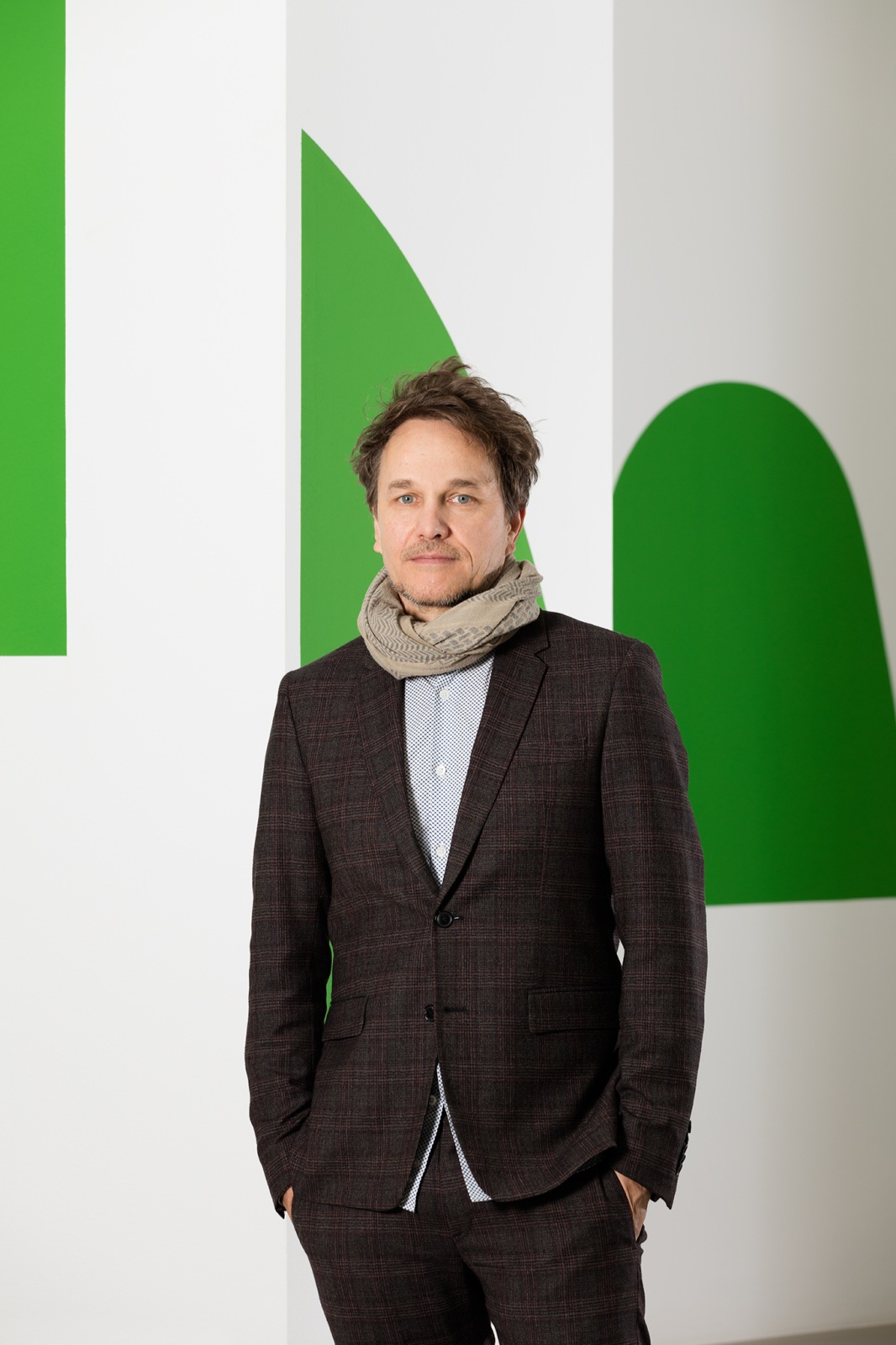Christopher Roth

Christopher Roth was born in Munich, Germany. He lives and works in Berlin. His practice may be best understood as a kind of proactive intellectual scholarship that combines the factual and fictitious, with both analytic and poetic qualities.
Roth’s work seeks to understand how information, words, pictures and ideas are received, travel and are mediated at a constantly accelerating pace. Since the 1990s, Roth has focused on the “emptiness” of single images and certain generic imagery that surround us. These images only accrue meaning in context—a function easily manipulated by the mass media. This knowledge — acquired and practiced as an accomplished film editor and director of feature films and given theoretical underpinnings by his engagement with cultural history and philosophy—informs his entire practice.
His major research project 80*81 with Georg Diez, for example, sought to reconstruct events in the period from January 1980 to December 1981 as evidence of important paradigmatic cultural and historical shifts. These were chronicled in eleven books assembled from contemporary images, texts, and interviews that the authors undertook with contemporary witnesses, filmmakers and philosophers (among others). In addition, the project was presented at elaborately staged congresses and theater performances. In an additional volume, 2081, the authors constructed a future that, in turn, looked back to their 80*81 project as paradigmatic.
Roth’s films also excel at channeling a characteristically voracious intake of images and ideas, giving them a visual equivalent without imposing an order, which he considers arbitrary by definition. Instead, his work relies on an active, engaged audience to draw its own inferences.
Since the early aughts, projects increasingly experiment with the dissolution of linear time, posing an entirely fluid concept of past, present and future: fictionalizing the past (Baader, 2002), re-creating the future (Mozartbique, 2007–2013, with Franz Stauffenberg), looking back from the year 2081 (2081 and 80*81, 2010–13, with Georg Diez), or reconstructing in 2026 the formation of a philosophical discourse that has since radically altered the world (Hyperstition, 2016, with Armen Avanessian).
Roth’s most recent body of work can be located in the dynamic between French philosopher Quentin Meillassoux’s theory of a world that exists outside of its understanding by humanity and J.G. Ballard’s dictum from 1971 that “The future is a better key to the present than the past.”
His film Baader received the Alfred-Bauer-Prize (2002) and the Silberne Bär Prize (2016) at the Berlinale Film Festival Berlin. In 2016 his film Spring (part of The Seasons of Quincy: Four Portraits of John Berger) was screened at the Berlinale.
Selected projects include: Servus Papa, See you in Hell (co-writer, director and editor) with Jeanne Tremsal (co-writer) screening at Filmfestival Munich (2022); 2038 - THE NEW SERENITY, German pavilion in Venice Architecture Biennale, with Arno Brandlhuber, Olaf Grawert, and Nikolaus Hirsch (2022); Infinite Village, MANIFESTA 13, Marseille (2020); legislating architecture: architecting after politics. ein projekt von brandlhuber+ und christopher roth, aut. architektur und tirol, Innsbruck (2019); REALTY, KW Institute for Contemporary Art, Berlin (2018); Berlin Biennale 9, DISCREET, in collaboration with Alexander Martos and Armen Avanessian (2016); including Discreet, a film with Armen Avanessian (2016); Legislating Architecture, with Arno Brandlhuber (2016); Unsettling Green, Marta Herford (2016); CONCRETE YET UNSTABLE, Metropolis Kino, Hamburg (2016); Hyperstition, with Armen Avanessian (2015); Kidnapping Mozart (with Franz von Stauffenberg), Theater Bremen, Bremen (2015); Christopher Roth and Vera Lehndorff, annA+3 (2015); Christopher Roth and Vera Lehndorff, AnnA, (2015); Mozartbique (with Franz von Stauffenberg), Filmtheater Schauburg, Dresden (2015); Spring, as part of The Seasons in Quincy: Four Portraits of John Berger (2015); Docs, Megabox Kintex, Seoul (2014); Time Pieces, Nordstern Videokunstzentrum, Gelsenkirchen (2014); Das Christoph-Projekt by Christoph Draeger with Christopher Roth, Kunstraum Pro Arte Salzburg (2013); The New Restraint: Architecture in Straitened Circumstances (with Arno Brandlhuber), Bielefelder Kunstverein, Bielefeld (2013); Mahagonny ist überall und Chefsessel ab 59 €, Theater Bremen (2013); and The 80*81 indings, 2081 (with Georg Diez), Bayerische Staatsoper, Munich (2011); Mozartbique (in collaboration with Franz von Stauffenberg) (2007); Lacoma (2007); Baader, which received the Alfred-Bauer-Prize at Berlinale (2002); as well as numerous exhibitions with Franz von Stauffenberg as the artist duo RothStauffenberg between 2000 and 2009.